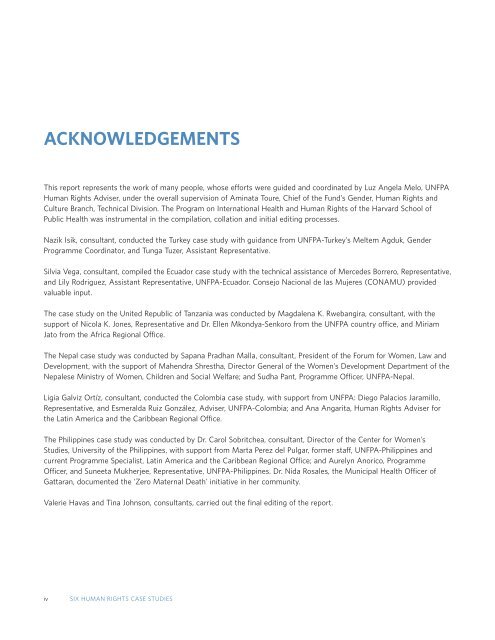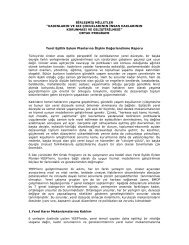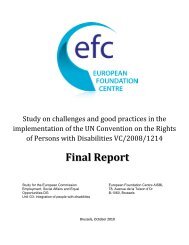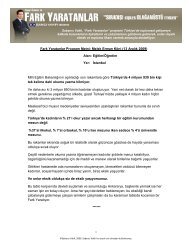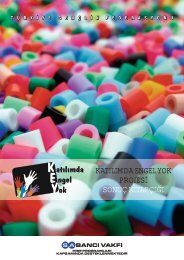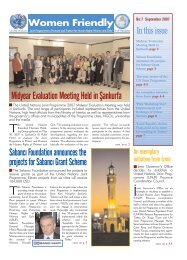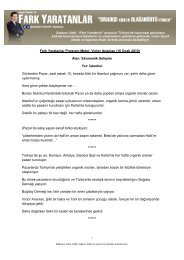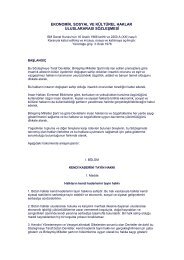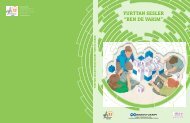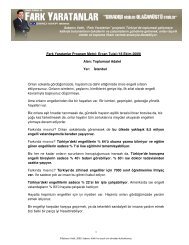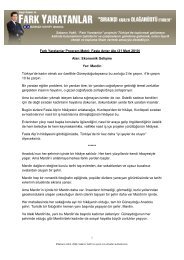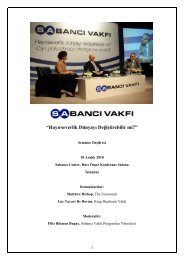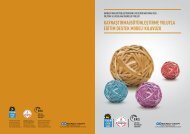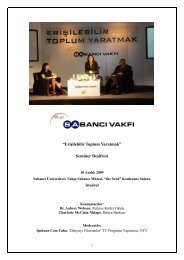UNFPA at Work: Six Human Rights Case Studies
UNFPA at Work: Six Human Rights Case Studies
UNFPA at Work: Six Human Rights Case Studies
- No tags were found...
You also want an ePaper? Increase the reach of your titles
YUMPU automatically turns print PDFs into web optimized ePapers that Google loves.
ACKNOWLEDGEMENTSThis report represents the work of many people, whose efforts were guided and coordin<strong>at</strong>ed by Luz Angela Melo, <strong>UNFPA</strong><strong>Human</strong> <strong>Rights</strong> Adviser, under the overall supervision of Amin<strong>at</strong>a Toure, Chief of the Fund’s Gender, <strong>Human</strong> <strong>Rights</strong> andCulture Branch, Technical Division. The Program on Intern<strong>at</strong>ional Health and <strong>Human</strong> <strong>Rights</strong> of the Harvard School ofPublic Health was instrumental in the compil<strong>at</strong>ion, coll<strong>at</strong>ion and initial editing processes.Nazik Isik, consultant, conducted the Turkey case study with guidance from <strong>UNFPA</strong>-Turkey’s Meltem Agduk, GenderProgramme Coordin<strong>at</strong>or, and Tunga Tuzer, Assistant Represent<strong>at</strong>ive.Silvia Vega, consultant, compiled the Ecuador case study with the technical assistance of Mercedes Borrero, Represent<strong>at</strong>ive,and Lily Rodriguez, Assistant Represent<strong>at</strong>ive, <strong>UNFPA</strong>-Ecuador. Consejo Nacional de las Mujeres (CONAMU) providedvaluable input.The case study on the United Republic of Tanzania was conducted by Magdalena K. Rwebangira, consultant, with thesupport of Nicola K. Jones, Represent<strong>at</strong>ive and Dr. Ellen Mkondya-Senkoro from the <strong>UNFPA</strong> country office, and MiriamJ<strong>at</strong>o from the Africa Regional Office.The Nepal case study was conducted by Sapana Pradhan Malla, consultant, President of the Forum for Women, Law andDevelopment, with the support of Mahendra Shrestha, Director General of the Women’s Development Department of theNepalese Ministry of Women, Children and Social Welfare; and Sudha Pant, Programme Officer, <strong>UNFPA</strong>-Nepal.Ligia Galviz Ortíz, consultant, conducted the Colombia case study, with support from <strong>UNFPA</strong>: Diego Palacios Jaramillo,Represent<strong>at</strong>ive, and Esmeralda Ruiz González, Adviser, <strong>UNFPA</strong>-Colombia; and Ana Angarita, <strong>Human</strong> <strong>Rights</strong> Adviser forthe L<strong>at</strong>in America and the Caribbean Regional Office.The Philippines case study was conducted by Dr. Carol Sobritchea, consultant, Director of the Center for Women’s<strong>Studies</strong>, University of the Philippines, with support from Marta Perez del Pulgar, former staff, <strong>UNFPA</strong>-Philippines andcurrent Programme Specialist, L<strong>at</strong>in America and the Caribbean Regional Office; and Aurelyn Anorico, ProgrammeOfficer, and Suneeta Mukherjee, Represent<strong>at</strong>ive, <strong>UNFPA</strong>-Philippines. Dr. Nida Rosales, the Municipal Health Officer ofG<strong>at</strong>taran, documented the ‘Zero M<strong>at</strong>ernal De<strong>at</strong>h’ initi<strong>at</strong>ive in her community.Valerie Havas and Tina Johnson, consultants, carried out the final editing of the report.ivSIX HUMAN RIGHTS CASE STUDIES


